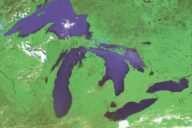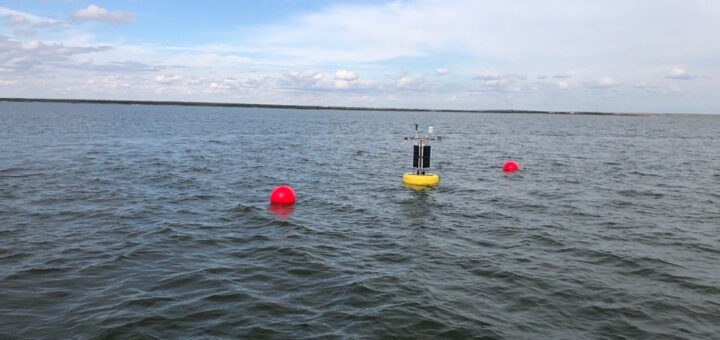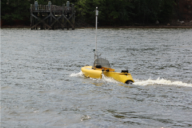Low funds means shallow Great Lakes harbors
A lack of funds for dredging and maintenance in some Great Lakes harbors is not only hurting the lakes, but the tourism industry as well. The Army Corps of Engineers[…]
A lack of funds for dredging and maintenance in some Great Lakes harbors is not only hurting the lakes, but the tourism industry as well. The Army Corps of Engineers[…]
New research shows that the amount of ice covering the Great Lakes has declined on average by 71 percent over the past 40 years. Lake Ontario has lost the most[…]
According to scientists, Lake Erie’s ecology has been rapidly dying due to water pollution since the mid-1990s. Specifically, a toxic algae called microcystis has pervaded the lake and depleted significant portions of oxygen from the water. These algae-infested waters snuff out the indigenous fish population, which is a substantial problem for the region that relies so heavily on sport fishing and lake tourism for its economic stability.
According to a new study conducted by the University of Wisconsin-Madison and the Wisconsin Department of Natural Resources, 30 to 70 percent of Wisconsin’s cisco fish, sometimes called lake herring, could become nonexistent in Wisconsin lakes by the year 2100 due to changing climate conditions.
 Research Brief: Evaluating the Efficacy of Satellite Imagery Driven Machine Learning Models in Measuring Cyanobacteria and DO ConcentrationsFebruary 24, 2025
Research Brief: Evaluating the Efficacy of Satellite Imagery Driven Machine Learning Models in Measuring Cyanobacteria and DO ConcentrationsFebruary 24, 2025 From Pans to Buoys: Advancing Reservoir Evaporation Rate Monitoring in TexasFebruary 19, 2025
From Pans to Buoys: Advancing Reservoir Evaporation Rate Monitoring in TexasFebruary 19, 2025 Research Brief: ASV Optimization in Lakes Prine to Harmful Algal BloomsFebruary 17, 2025
Research Brief: ASV Optimization in Lakes Prine to Harmful Algal BloomsFebruary 17, 2025 Research Brief: Phosphorous Binding Treatments in Grand Lake St. MarysFebruary 10, 2025
Research Brief: Phosphorous Binding Treatments in Grand Lake St. MarysFebruary 10, 2025 Research Brief: Influences of Lake Conditions on the Thermal Regime of the Milwaukee EstuaryFebruary 3, 2025
Research Brief: Influences of Lake Conditions on the Thermal Regime of the Milwaukee EstuaryFebruary 3, 2025


